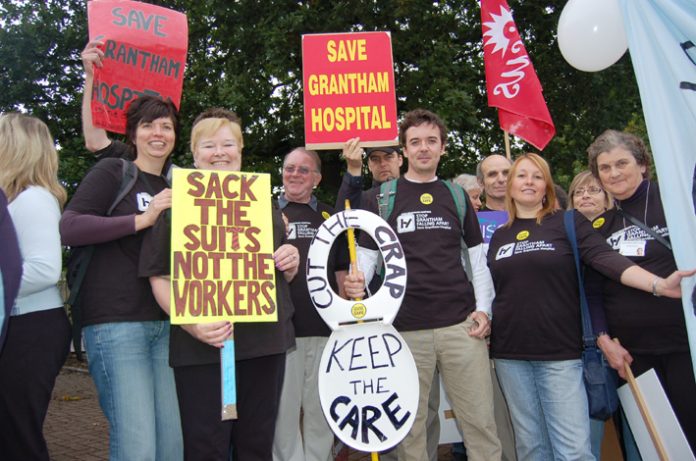
Government plans to downgrade district general hospitals in favour of care in the community are being pushed forward with the announcement of plans to carry out large numbers of operations in GP surgeries.
The government is launching thirty pilot schemes across the country in which teams of GPs, consultants and nurses are to carry out operations such as hernia repair.
Other procedures being assessed include varicose vein repairs and diagnostic tests.
The spin being put on the move is that most people want NHS services close to home.
The Department of Health pilot schemes will pioneer shifting care in the areas of urology, ear, nose and throat, dermatology, orthopaedics, gynaecology and general surgery from hospitals to GP surgeries.
Announcing the scheme, health minister Lord Warner said: ‘In some areas, this will involve making sure there are GPs who are as skilled with the scalpel as they are with the stethoscope.’
The British Medical Association (BMA) expressed caution over the scheme.
Commenting on the launch of the pilots, Royal College of Nursing General Secretary Dr Beverly Malone said: ‘Patients tend to make a much speedier recovery in the comfort of their own homes rather than in a hospital setting.
‘I am delighted that nurses will be playing a major role in making sure patients can access the right services at the right time and on their doorstep.
‘It is right that these reforms are being piloted first so we can be sure they are in the best interests of patients.
‘However, in order to ensure the success of the move from hospital to the community it is vital these reforms are properly funded and that there is more investment to support and build up the community nursing workforce who are already struggling with heavy workloads.’
• Meanwhile, a number of GPs have expressed concern that health care is being rationed by stealth, with GP referrals to consultants be- ing blocked.
A third of Primary Care Trusts (PCTs) have established ‘referral management centres’.
The British Medical Association had warned about these centres causing problems and now a number of GPs have complained that referral centres are preventing patients from seeing the doctor of their choice and in some cases are prolonging waiting times in order to save cash.
In a survey carried out by the medical magazine Pulse, ten per cent of all PCTs admitted they had a specific target to cut GP referrals.
Some centres are refusing to let patients see consultants sooner than the government’s outpatient target of 13 weeks.
In one instance, responding to patients’ complaints, GPs in Milton Keynes discovered a backlog of more than 2,000 letters locked in a cupboard by referral centre secretaries until just short of the 13-week waiting-time target.
The British Medical Association and patients’ groups both criticised the government-sanctioned referral schemes.
Dr Hamish Meldrum, chairman of the BMA’s GPs’ committee, said: ‘There is considerable concern among doctors.
‘Where clinicians have been involved, things may be working well, but in other places there has been no effective consultation and it seems the main intention is to cut costs.
‘This is potentially harmful to patients’ health.’
Katherine Murphy, of the Patients’ Association, said: ‘These centres are springing up all over the place. It seems to be another way of rationing patient care by stealth.’